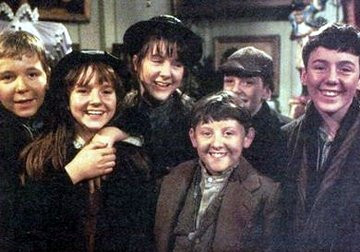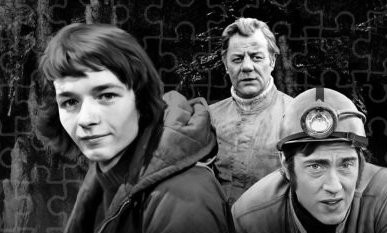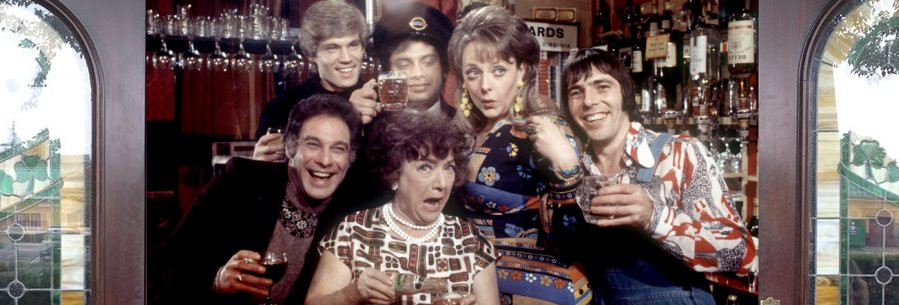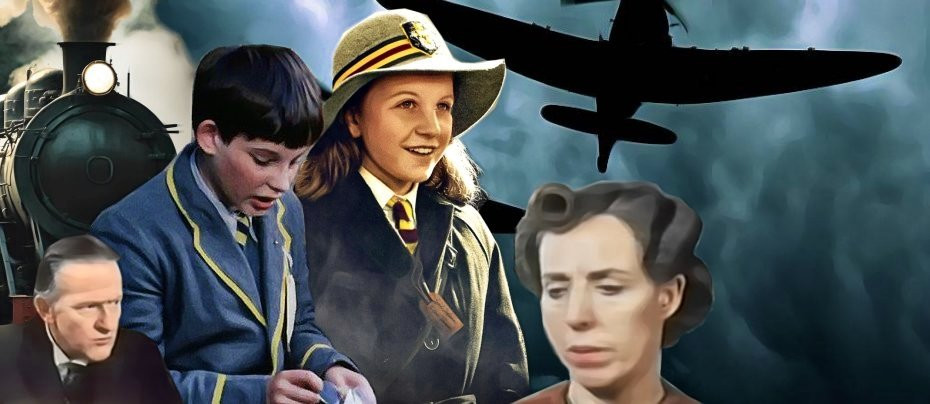
Carrie's War
1974 - United KingdomCarrie’s War is very much a character-driven story. A period piece that just happens to be set during the war but with very little to say about the war itself and a whole lot more to say about relationships.
One of the most realistic and emotive books to depict the experiences of evacuated children during World War 2 is Nina Bawden's classic 1973 novel concerning Carrie Willow (Juliet Waley) and her younger brother Nick (Andrew Tinney) who are transported from London to Wales. The book is regarded so highly that it is now required reading in the National Curriculum at Key Stage 2.
Bawden was perfectly qualified to capture the plight of youngsters separated from their parents in 1939 to protect them from the risks associated with the aerial bombing of cities by moving them to areas thought to be less at risk. At the age of fourteen, she was forced to leave her home in Ilford, Essex, and her full-time education at Ilford County High School for Girls to be evacuated to Aberdare, Wales. She returned to her studies after the war and graduated with a Master of Arts Degree from Oxford in 1951.
Her first novel was published in 1953 and in 1954 she married Austen Kark, a reporter who eventually became managing director of the BBC World Service. Her 1966 novel, The Witch's Daughter, was successfully transferred to the small screen in 1971.
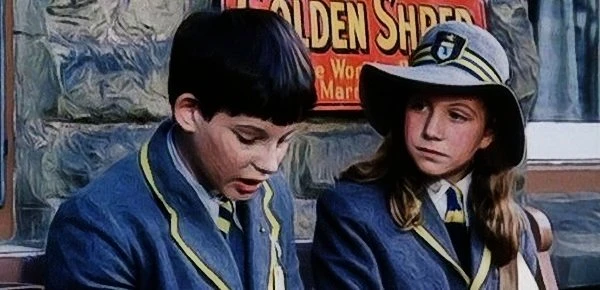
The television adaptation of Carrie's War differs from the novel in respect of the original story - starting and ending with Carrie revisiting Wales many years after the War with her own children and recalling her memories of the place. For the teleplay, the story is told as a contemporary tale through the eyes of the children. It begins on the train from London to a small Welsh mining village. Miss Fasackerly is supervising, marching crisply up and down the train corridor, comforting, cajoling and generally keeping up the morale of the youngsters in her charge.
When they arrive, the children are ushered into the village hall where tea and buns await them as well as a group of Welsh women, glaring at their unwelcome visitors and trying to decide which children to take into their care. The winsome Carrie manages to persuade the timid Miss Evans (Avril Elgar), who would have preferred two little girls, to take her brother and herself into her home.

Miss Evans lives with and looks after her brother (Mr Evans played by Aubrey Richards), who devotes his life to council work and religion in addition to running a little business. The brother is a mean-spirited tyrant who insists that his sister rolls up the stairway carpet during the daytime (so it doesn’t get worn out – “twice a day is quite enough, so if you could remember to bring down all the things that you are going to need for the day – in the morning”), and who threatens to strike Nick with his belt when he finds him taking a biscuit out of a jar in the grocery shop that he owns.
In complete contrast, Miss Evans is a kind and gentle soul who tells the children to call her ‘Auntie Lou’. She tells the children that Mr Evans’ is a good man whose bark is worse than his bite. “He’s had a hard life and finds it difficult to forgive. He hasn’t spoken to our Dilys (their elder sister) since she married Mr Gotobed” because he is English and a mine owner whom she married just after their father was killed down a pit. “Dancing on father’s grave, Mr Evans called it.” Despite the fact that Mr Gotobed has been dead for five years and Dilys is now an invalid, Mr Evans still won’t forgive her. “Being hard on her has made him hard on everyone else.”
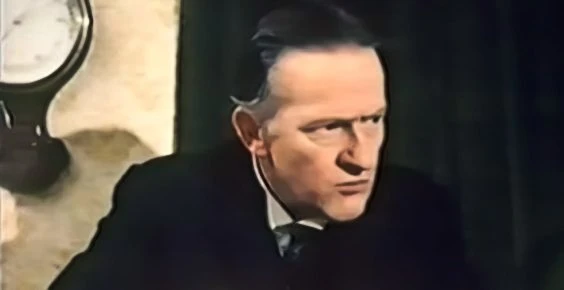
In time, Carrie's unhappy and rebellious brother develops a love for the countryside and begins to relish their frivolous strolls together with Auntie Lou. She introduces them to a dark and spooky path, Druid’s Grove, leading to Druid’s Bottom, the run-down house where Dilys lives. “Mr Evans doesn’t like me to visit her often, but I go up there every so often to collect a chicken or goose for Sunday lunch.” Local legend has it that Druid’s Bottom is ‘not a place to go to after dark’, especially not alone.
The children are then given a task to go to Druid’s Bottom at night. (Mr Evans remarks with bitter satisfaction, "It's about time they did something for their living.") Druid’s Grove is even scarier and spookier at night with unexplained noises piercing the darkness. However, young Carrie boldly faces her worries and takes control of the situation.
Carrie’s War is very much a character-driven story. A period piece that just happens to be set during the war but with very little to say about the war itself and a whole lot more to say about relationships. There are no action scenes, no escaped German prisoners-of-war and no violence to be found anywhere in the five episodes. The children find comfort at Druid’s Bottom where Dilys (Patsy Smart) lives with her housekeeper, Hepzibah Green (Rosalie Crutchley) – who, it is claimed, is a white witch, the near-mute Mr Johnny (Matthew Guinness) and fellow evacuee Albert Sandwich (Tim Coward).
The original novel, which had more of a suggestion of witchcraft than in the televised adaptation, was picked for the National Curriculum as it ‘lends itself to work on narrative structure, comparing characters, especially their different views of events, describing setting and atmosphere and building suspense and mystery through writing. Themes such as separation, growing up, friendship, bullying, kindness, family relationships, jealousy, greed, misunderstanding and beliefs can all be explored.’
Eventually, Auntie Lou marries an American soldier, despite Mr Evans’ objections, and leaves the village. After Mrs Gotobed dies, Mr Evans tries to claim her mansion and property and evict Hepzibah and Mr Johnny when her will disappears. Carrie and Nick believe that Mr Evans has stolen the will. In retaliation, Carrie steals an old skull that is believed to control a curse on Druid’s Bottom, which then burns down. When Carrie and Nick take the train home to their mother, Mr Evans is left alone. But there is one last terrible shock to come.
Seen this show? How do you rate it?
Seen this show? How do you rate it?
Published on July 26th, 2023. Written by Marc Saul for Television Heaven.


